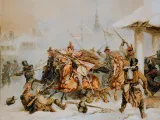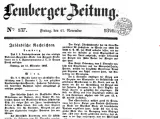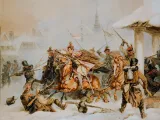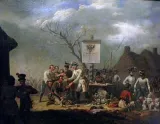Published: 13.08.2025
The Faculty of Arts of the University of Pardubice is a key partner in a major international project, “Central Europe in the History – The Year 1846 in Poland in the Light of the European Press,” funded by the International Visegrad Fund. On the Czech side, the project is academically led by professor Miroslav Šedivý from the Institute of Historical Sciences at FF UPCE, a leading expert on international relations and the history of diplomacy in the early 19th century.
The year 1846 is among the dramatic chapters of Polish history. The Kraków Uprising, the Galician slaughter, and the annexation of the Republic of Cracow to Austria were events that resonated strongly across Europe. Contemporary newspapers saw them as a reminder of the unresolved “Polish question,” a reflection of deep social problems, and a violation of the 1815 Congress of Vienna treaty, which formed the basis of the European political order.
The project aims to show how these events were perceived and interpreted by the press across Europe – from Austria and France, through Prussia and Russia, to Great Britain and Spain. Its goal is to uncover the connections between reactions to the Polish events, the domestic political issues of individual countries, and their impact on international relations.
International Team and Unique Approach
The project involves 16 researchers from 8 countries, who analyze period press from 22 European states and regions. This scope is unprecedented in historical research on the 19th century. The outcome will be a volume of comparative studies mapping European political and media responses to the year 1846 in Poland. There is currently no existing study on this topic, or indeed on any similar subject, on the scale envisioned by the project.
Strengthening Awareness of Central Europe
The project seeks to contribute to a better understanding that the countries of Central Europe have always been an integral part of European history and have actively shaped the international political, social, and cultural environment. It reminds us that even without their own statehood, they played an important role in the “great power game” and that their story deserves greater visibility in European historiography.
The results will be presented in a book published in Polish and English, as well as in contributions at a planned academic conference at the University of Łódź, with project participants serving as speakers.
In the autumn and winter of 2026/2027, six promotional events will be held in London, Brussels, Prague, Bratislava, Kraków, and Poznań.
Project: Central Europe in the History – The Year 1846 in Poland in the Light of the European Press.
Period: 2025–2026

Text: Jan Pražák, FF UPCE




